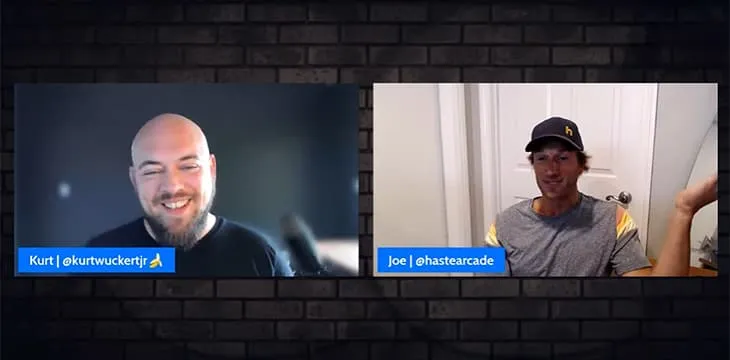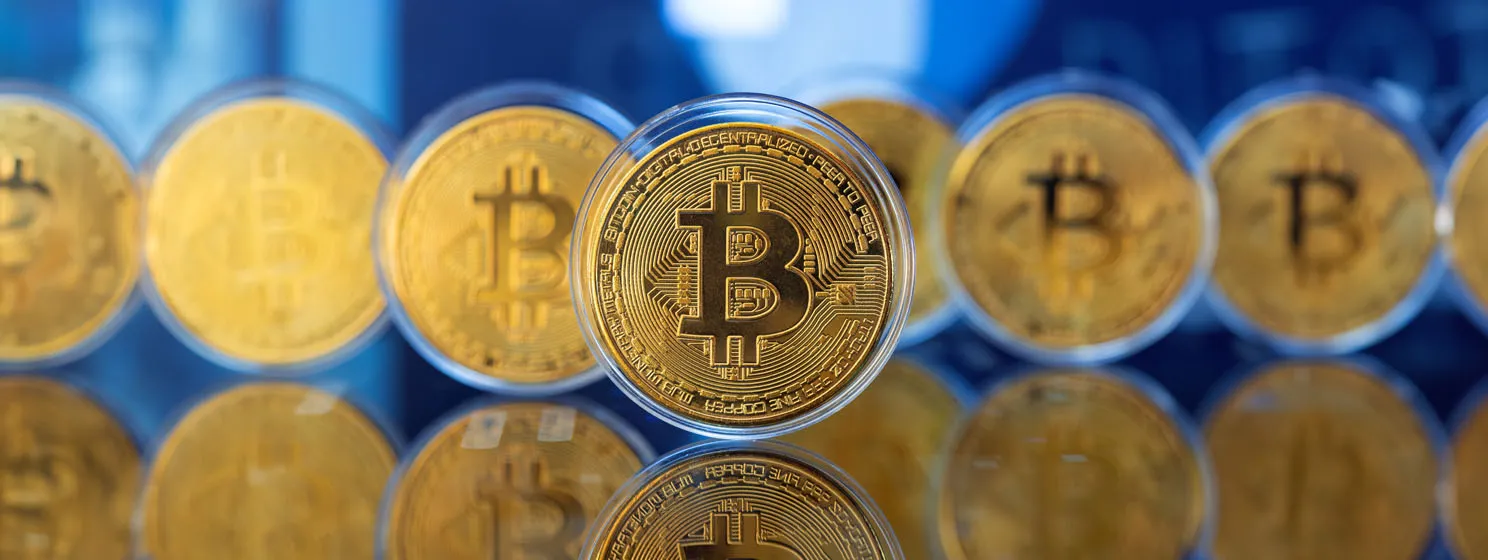|
Getting your Trinity Audio player ready...
|
After a very successful CoinGeek Bitcade in Miami, CoinGeek’s Kurt Wuckert Jr. had Haste Arcade Co-Founder Joe DePinto on the recent episode of the CoinGeek Weekly Livestream. Delighted with a great turnout of the event, DePinto told CoinGeek that Haste Arcade had seen an uptick in the number of new users since the Bitcade in Miami.
The hosting venue held a capacity of up to 100 people. However, at least 200 guests attended the event throughout the early evening. Each of the guests signed up to get their HandCash wallet and played games built on BSV enterprise blockchain including games featured by Haste Arcade, Duro Dogs, Sato Runner, and CryptoFights.
DePinto told CoinGeek that its team size has almost tripled in the last two years, adding that they had officially launched the concept business with only one game in January 2021, displaying the power of microtransactions based on the original Bitcoin protocol. He shared that an educational article about the first Haste Arcade game published by Unbounded Capital acted as a catalyst for their growth in terms of building a platform and adding more games with leaderboard playouts.
“We started in 2021, and the progress has been made more on the backend side so far, but you will see many more games with better graphics in the near future. The main goal thus far has been getting our entire platform ready for our mainstream users. Haste Arcade is now also focused on enhancing the onboarding experience for new users who don’t or don’t want to understand and learn about digital currencies,” DePinto said.
Haste Arcade SDK
When asked which term among token, stablecoin, coins, credits, etc., Haste Arcade prefers to use, DePinto said it would be good for BSV to have a stable token to simplify things in the long run. However, at this point, he said, Haste Arcade offers its users the ability to use the “credits.”
“Denomination in fiat is very important to Haste Arcade. If the user buys $5 worth of credits, they get a certain number of Satoshis for those credits. Because we denominate our games in fiat, the fluctuation in the BSV price will warrant a different number of Satoshis (credits) at different times or on different days. We could denominate only in Satoshis, but we don’t want to limit the mainstream to learn about BSV if they don’t want to.” He added that users would eventually and organically become interested in learning about Satoshi, but Haste Arcade wouldn’t force them to do it right now.
Seemingly excited about the potential of launching as physical arcades or attaching the existing SDK to a physical consul, Wuckert asked DePinto whether Haste Arcade has any such plans in the pipeline.
“We do have the ability to configure joysticks,” DePinto said, adding that Haste Arcade might attach its SDK to a physical consul but not in the near future.
“Blockchain-based physical arcade in casinos, IL, etc, is on our long-term roadmap. There is a huge business opportunity there but let’s first test our SDK with gaming experts, aiming to involve bigger studios, and riot games, to scale and model the business to those levels,” he said.
DePinto told CoinGeek that the company’s SDK is in English, up and running, and that they ran their first mini-game competition, which concluded in January this year. He explained that a total of seven games were submitted, and the main goal of the contest was to iron out the kinks and identify the type of games people were looking to submit.
“Haste will be doing a bigger competition in 2022, which will involve schools and colleges. Gaming schools will be helping Haste Arcade to organize that,” DePinto revealed.
Responding to a question asked on the stream regarding which game could blow up the micropayments, “Jump is a good example,” DePinto said, describing that it is quick, yet frustrating enough for users to think that they can do better than what they are doing at that very moment.
“It takes less than 5-6 seconds per game, involves a little bit of frustration, and has slick graphics,” he explained.
Why HandCash?
“Handcash quite literally made the Haste games possible. Their team is very responsive to our concerns and requirements, and they work closely with us to address/meet our needs. The HandCash team sticks to their company’s roadmap without compromising our business and technical goals. We work in unison, and share a very good dynamic,” DePinto highlighted, giving a big shout-out to the team at HandCash.
When asked if Haste Arcade will be officially launching in territories like India, DePinto told CoinGeek that it all depends on whether the residents of India have access to BSV or not.
“The U.S. and Mexico were the first markets where the HandCash ramps were approved and that was a big deal for us. In terms of playing the games on Haste Arcade, if people have access to HandCash (and BSV) in India, they can play games on our platform, because our focus is on “play to earn” globally,” DePinto explained.
“If HandCash is supported by the Indian government, then Haste will take that route although a different game needs to be developed on our platform before we get there,” he noted.
Wrap-up
DePinto reiterated his thoughts regarding the Bitcade event, emphasizing that the pop-up Bitcoin arcade was one of the “coolest” things he and Haste Arcade, as a company, have experienced. He noted that participating in the event reassured him that the BSV community is hardworking, sincere, and diligent at building products for the mainstream, catering to real-life use cases.
“It was a very rewarding experience and I think CoinGeek should replicate Bitcade-like events that encourage small-group engagement compared to massive events,” he said.
The Haste Arcade team attended the Game Developers Conference in San Fransisco, California, in March 2022, focusing on attending similar big events to get more traction and moolah before hosting their own pop-up at those events in the future.
On a different note, Wuckert Woo-Hoo’d BSV hitting more milestones this past weekend, i.e., hitting 13 million transactions a day, biggest blocks ever mined, and the biggest number of transactions in a block ever mined—all done by Gorilla Pool and CryptoFights, both setting a “ton of world record.”
Before you go, hop on SLctionary.com and add your unique definition to the Word Of The Day—”Block,” sponsored by CoinGeek and earn $25.
Calling all word slingers for this weeks' #CGWordBounty!
For your chance to win $25 in #BSV head over to @SLictionary and define the word | BLOCK!
Go to – https://t.co/gxLk7XVYED – search for the word and start #Wordslinging! pic.twitter.com/bC7BuNPGeA
— CoinGeek (@RealCoinGeek) April 12, 2022
Check out the previous episodes of CoinGeek Weekly Livestream on YouTube.
Watch: CoinGeek Bitcade in Miami Beach highlights

 06-30-2025
06-30-2025 





